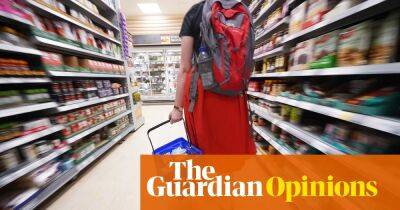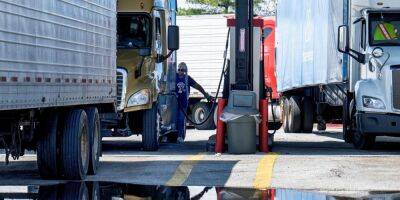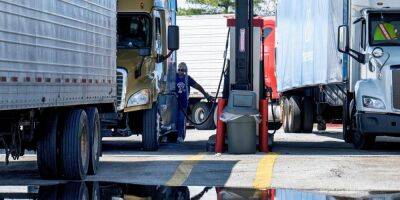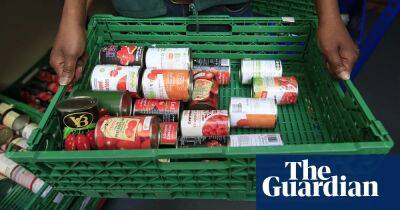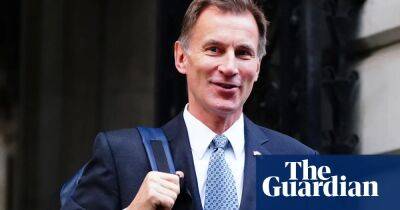Food for thought: why isn’t the UK government focusing on soaring grocery prices?
N ot a single item in the average British grocery shop is falling in price. From basic essentials such as bread, milk and cheese to sugar and tea, the cost of a weekly food shop is rising at the fastest annual rate since 1977.
More than a year into the worst period for living standards in modern records, Britain’s cost of living crisis is taking a horrifying turn. First came rocketing energy prices. Now the baton is being passed from our gas and electricity bills to the supermarket till receipt.
Last week’s news that inflation in food and nonalcoholic drink has reached 19.1% should be setting alarm bells ringing across the government.
For poorer families, who spend a larger portion of their income on food and other basic essentials, the impact is worse still. Even before the cost of living crisis took root, 4.7 million people were in food insecurity, with Britain already a nation of rising in-work poverty and families – including 800,000 children – forced to turn to food banks.
However, while Rishi Sunak has promised to halve inflation this year, as one of his five key priorities before the next election, there is little sign his government has a grip on the food crisis sweeping Britain. Rather than focus on soaring costs in the supermarkets, the prime minister is preoccupied by the pay of junior doctors and nurses.
Last week’s inflation figures for March show a worrying new phase of the cost of living crisis is taking root.
The energy price surge triggered by Russia’s invasion of Ukraine is beginning to fall out of the annual inflation estimate. Prices might remain at sky-high levels but are at least not getting worse. In the clearest example in the March data, petrol and diesel prices were in sharp reverse, helping the
Read more on theguardian.com

